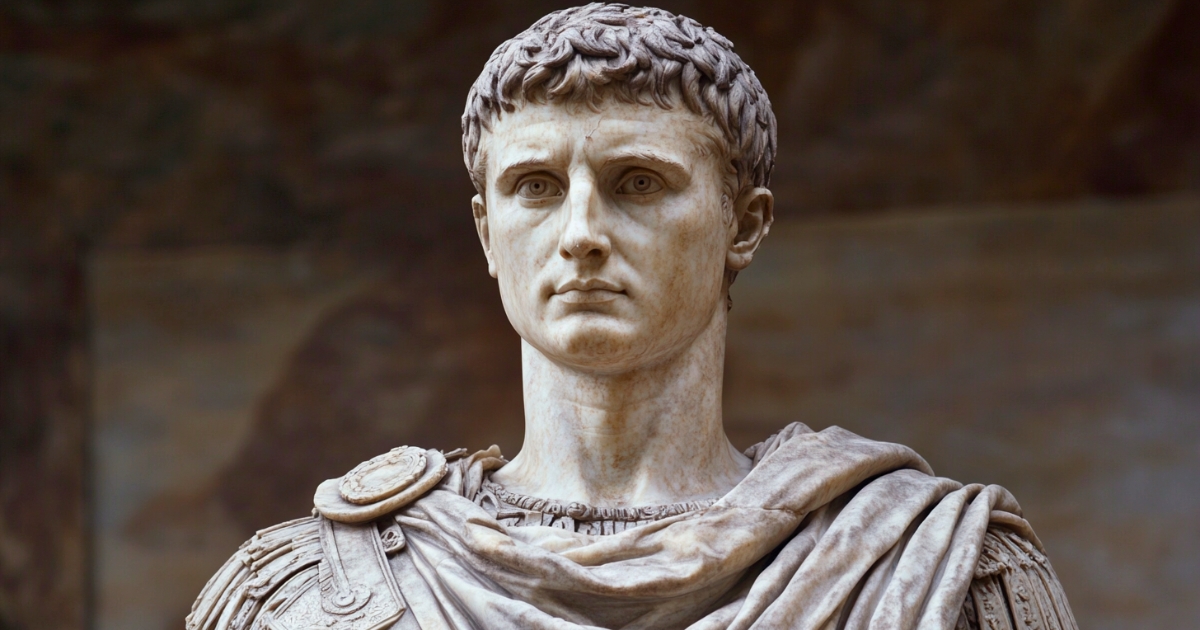Introduction
The event that took place in the Roman Senate on March 15, 44 BC became a turning point that greatly changed the history of ancient Rome. On this day, Gaius Julius Caesar (commonly known as Julius Caesar) was assassinated by senators who sought to protect the republic. This incident symbolized the end of the long-standing Roman Republic and the beginning of a new imperial era.
Background to Caesar’s Rise
Caesar’s rise occurred at a time when the Roman Republic was already facing a serious crisis. In the 1st century BC, Rome was facing rapid territorial expansion and social change. The traditional republican system was insufficient to effectively govern the expanded empire. Under these circumstances, generals who achieved military success began to strengthen their political influence.
Caesar gained enormous wealth and fame through his military successes in Gaul (present-day France and its surrounding areas). In 49 BC, amid deepening conflict with the Senate, Caesar crossed the Rubicon River and started a civil war. He eventually emerged victorious and became the de facto ruler of Rome.
Caesar the Dictator
After his victory, Caesar acquired unprecedented power as “dictator for life.” He implemented many reforms, including calendar reform (which became the basis of the current Gregorian calendar), land redistribution, and expansion of the Senate. However, these reforms and his absolute power incurred the resentment of many senators who valued the traditions of the republic.
The Assassination Plot
Senators dissatisfied with Caesar’s dictatorship began to secretly plot his assassination. One of the leaders was Marcus Junius Brutus. Brutus was Caesar’s close friend and had once been under his protection, but he joined this plan to protect the ideals of the republic.
Other key conspirators included Gaius Cassius Longinus and Decimus Junius Brutus Albinus. They gained the support of other senators by exploiting rumors that Caesar desired the throne.
The Fateful Day: March 15, 44 BC
On the day of the assassination, Caesar arrived at the Senate house. The conspirators surrounded him, approaching under the guise of presenting a petition. Suddenly, Tillius Cimber grabbed Caesar’s toga, which was the signal for the other conspirators to draw their daggers. Caesar desperately resisted but suffered 23 fatal wounds and died at the foot of Pompey’s statue.
Legend has it that in his final moment, Caesar said, “Et tu, Brute?” (You too, Brutus?), but this is likely a later fabrication.
Chaos After the Assassination
Caesar’s assassination did not bring about the restoration of the republic as the conspirators had hoped. Instead, Rome plunged into civil war again. Marcus Antonius, Caesar’s close associate, and Octavian (later the first Roman Emperor Augustus), Caesar’s nephew and adopted son, engaged in a power struggle.
Initially, Antonius and Octavian opposed Brutus and Cassius but defeated them at the Battle of Philippi in 42 BC. Afterwards, the Second Triumvirate was formed by Antonius, Octavian, and Marcus Aemilius Lepidus.
However, this alliance did not last long. Eventually, Octavian defeated Antonius and Cleopatra and became the sole ruler of Rome. In 27 BC, the Senate granted him the title of “Augustus,” officially beginning the Roman Empire.
Long-term Impact
Caesar’s assassination fundamentally changed Rome’s political system. Ironically, the actions of the assassins who sought to protect the republican ideals paved the way for imperial rule. Augustus maintained the institutions of the republic on the surface while effectively wielding absolute power as emperor.
This event has also had a significant influence on later literature and art. Shakespeare’s play “Julius Caesar” has passed down this historical event to posterity as an immortal masterpiece.
Conclusion
The assassination of Julius Caesar is one of the most important turning points in ancient Roman history. It symbolizes the transition from republic to empire and had a long-lasting impact on the course of Western civilization. This incident highlights the eternal conflict between power and ideals, personal ambition and national interest, and continues to provide deep insights into the nature of politics and power even today.


